Iranian and Japanese Top Diplomats Hold Discussion
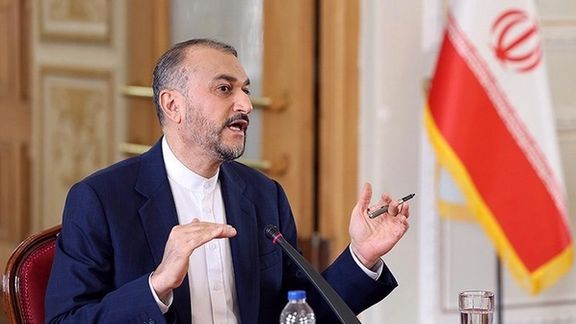
Iranian Foreign Minister Hossein Amir-Abdollahian and his Japanese counterpart Yoshimasa Hayashi have discussed bilateral relations as well as regional and international developments.

Iranian Foreign Minister Hossein Amir-Abdollahian and his Japanese counterpart Yoshimasa Hayashi have discussed bilateral relations as well as regional and international developments.
In a phone call on Wednesday, the two sides exchanged views on the development of bilateral cooperation in various fields, as well as the state of Iran’s nuclear talks with the West, Mehr news agency reported.
Amir-Abdollahian noted that Iran always considers diplomacy and negotiation as a way to resolve regional and global challenges.
Nuclear talks that began in April 2021 reached a deadlock last September, with the United States blaming Iran for unreasonable demands.
Regarding the war in Ukraine, he claimed the Islamic Republic is opposed to the war.
Iran has been supplying suicide drones and possibly other weapons to Russia, angering NATO countries.
Moscow began using the Kamikaze drones against Ukraine in early October, forcing Washington to finally say that the nuclear talks had reached an impasse.
For his part, the Japanese minister called ties between Tehran and Tokyo very important, expressing his country's stance on the process of the nuclear negotiations.
In the days leading up to Russia’s invasion of Ukraine in February 2022, negotiators in the nuclear talks were scrambling to reach the finish line, promising to successfully conclude a diplomatic process that had lasted eleven months.
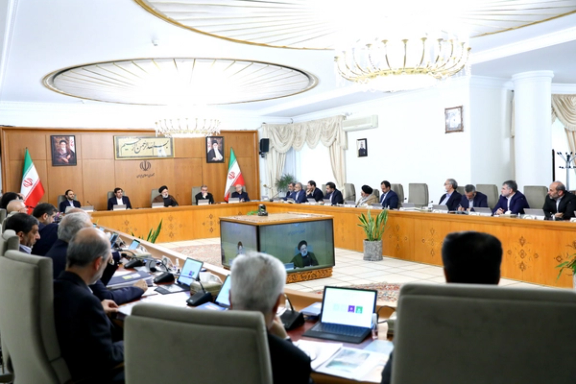
Iran's President Ebrahim Raisi Tuesday, finally responded to calls for reshuffling his economic team although the changes appear to be too little, too late.
Government spokesman Ali Bahadori Jahromi said on Tuesday that Davoud Manzour has replaced Massoud Mirkazemi as the head of the Planning and Budget Organization (PBO), Jalal Sadatnejad has been removed from his post as Agriculture Minister.
Bahadori said that the changes are meant to solve the people's problems. However, he further explained that former (PBO) Chief Mirkazemi was replaced because he suffered from heart disease adding that he will serve as an adviser to the government.
The new PBO Chief Manzour has a controversial track record as the former head of Iran's Tax Organization where he threatened reporters when they asked why IRGC entities such as the Khatam ol-Anbia did not pay taxes. Manzour was subsequently criticized by reporters for not knowing enough about the structure of the organization he headed and for exerting pressure on whistle-blowers instead of paying attention to what they said.
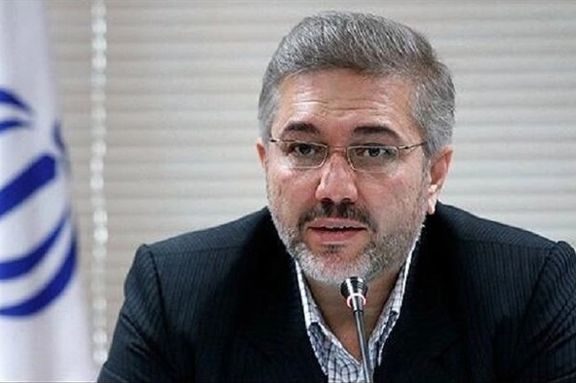
Like most of Raisi's aides, Manzour is also an Imam Sadeq University alumnus, an institution run by hardliners, where he studied economics. All Imam Sadeq students are chosen from among regime loyalists who are then promoted after graduation. Manzour has been heading various government financial offices since 2006.
Conservative commentator Mohammad Mohajeri, one of Raisi's critics who has been calling for changes in the government's economic team for more than 18 months now, once again criticized the president for choosing his aides from among a small circle. He made the comment shortly before the changes were announced but his criticism is still valid.
Mohajeri said in an interview with Entekhab news website that one of the problems of the Raisi administration is that Iran's political, economic and cultural elites are not willing to work with it. He further charged that the 7,000-page economic plan Raisi was boasting about before his election was blank "but he even does not have the right individuals to implement what was written on those blank papers," he said.
He said, a review of the output of all the state-owned news publications shows that very few experts have spoken about the government's plan because they do not wish to belittle themselves and stoop to the level of the government. Mohajeri further doubted that Raisi would introduce better individuals to replace the current officials because he does not have better individuals around him. Raisi has no choice other than working with inefficient individuals who have studied at the Imam Sadeq University.
He suggested that Raisi should reach out for help to elites outside the government, especially to recruit qualified people to replace his incapable economic team.
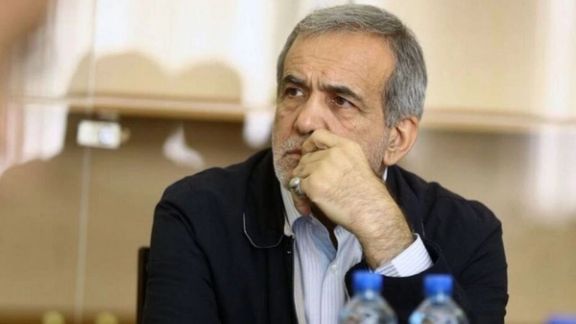
Meanwhile, lawmaker Massoud Pezeshkian criticized the administration for repeatedly blaming the previous government. Pezeshkian told ILNA that Raisi cannot reach any good result by insisting to work with non-experts.
Welcoming changes in the government, Pezeshkian pointed out that both the officials and the policies should change as both are problematic. Most of the officials in the government lack the right expertise and experience and are not motivated for what they are expected to do.
In another development, Iranian economist Hossein Raghfar pointed out in an interview with reformist Jamaran News website that one of the reasons why Raisi cannot address a problem such as inflation is that it serves the interests of Iranian oligarchs. They have cornered lucrative trade rights and they can more easily secure scarce hard currencies when the Iranian rial has lost most of its value.
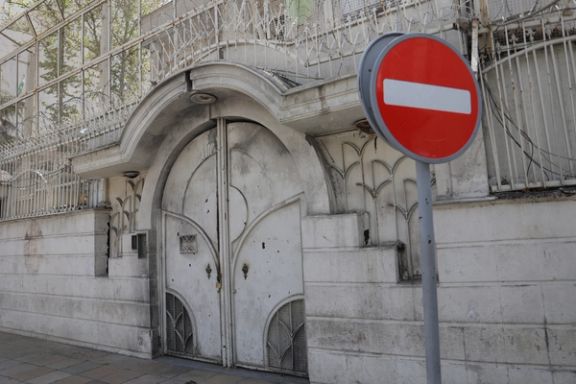
A delegation from Iran has arrived in Saudi Arabia to prepare the ground for reopening Iran's embassy in Riyadh and its consulate general in Jeddah.
Director General of Iran's Foreign Ministry Office for Persian Gulf Affairs, Alireza Enayati, said the resumption of flights to and from Iran are also on the agenda of the discussions.
The visit follows a delegation to Tehran this week as Saudi officials also assessed the technicalities of reopening its embassy and consulate.
It has been a busy week for the two countries as they repair diplomatic relations following a detente brokered by Beijing in March after seven years of hostility.
The agreement the two countries reached in March with Chinese mediation foresaw full diplomatic relations being restored in two months. So far contacts and discussions seem to continue on track.
The Council of Ministers of Saudi Arabia on Tuesday reviewed the latest developments related to the implementation of the agreement between Riyadh and Tehran to resume diplomatic relations.
Foreign ministers of Iran and Saudi Arabia met in Beijing on Thursday for the first formal gathering of their top diplomats in more than seven years.
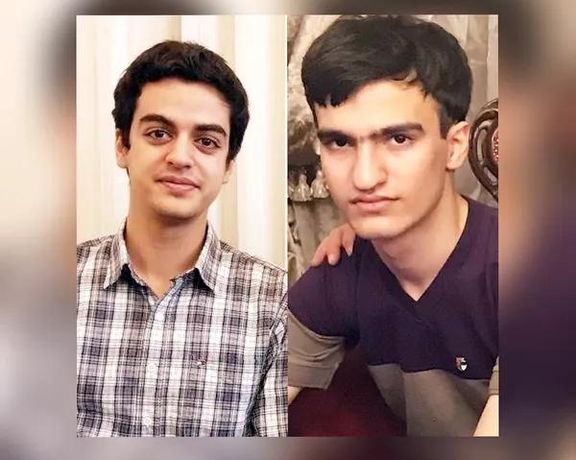
In a message from Tehran’s notorious Evin prison, two Iranian imprisoned award-winning students emphasized that a free Iran will be realized.
In a letter published on the occasion of the third anniversary of their detention on social media, Ali Younesi and Amir Hossein Moradi said "After the sufferings and hardships of these years, we are sure of the arrival of moments of true happiness … and the realization of a free Iran."
Political prisoners in Iran often find ways to send messages from prison using connections through other detainees.
"Like all the young people who were killed in the streets, we have no desire but the freedom of Iran," they added.
The two Sharif University award-winning science students were arrested April 2020, Amnesty International reported at the time, with a judiciary spokesman announcing explosive devices had been found in their homes and that they had links to “counter-revolutionary groups.”
“The authorities violated their right to be presumed innocent by publicly accusing them of ties to ‘counterrevolutionary’ groups apparently based on their families’ real or perceived association” with the opposition group MEK, Amnesty wrote in November 2021.
Moradi and Younesi had been convicted of ‘corruption on earth’ and ‘conspiracy against the [political] system.’
In a letter January, several Nobel Laureates and leading academics asked United Nations Secretary-General Antonio Guterres and Human Rights High Commissioner Michelle Bachelet to petition Iran over Moradi and Younesi.
Younesi won the gold medal in the International Astronomy Olympiad in 2018 in China, and Moradi was an award-winning physics student.
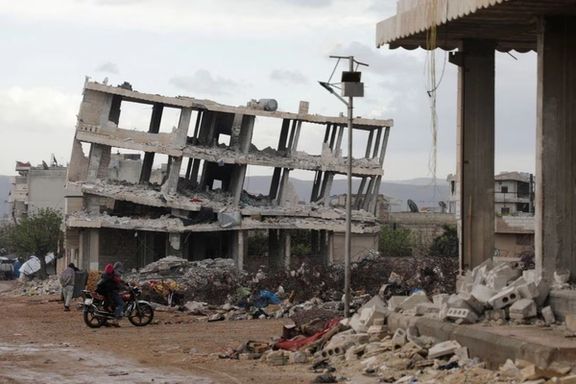
Iran continues to use the opportunity of earthquake relief to smuggle weapons and military equipment into Syria.
As regional tensions escalate, including attacks on US and facilities in Syria and rockets launched from both Lebanon and Syria by Iranian proxies into Israel, activities in Syria are ramping up.
The fact that humanitarian relief is not subject to sanctions, makes it all the more easy for Iran to capitalize on the catastrophe, in the region where Tehran’s influence has been on the rise since it began supporting Assad in the civil war that began in 2011.
Syria has become a key battleground between Iran and its enemies, as Iran buttresses the threat from Israel and strengthens the Assad regime. Strikes in recent weeks from Israel have seen key Iranian military figures killed from the Revolutionary Guards and Quds Force, including targeting weapons factories and infrastructure in Iran.
Israel, which has vowed to stop Iranian entrenchment in Syria, has carried out hundreds of strikes in government-controlled parts of that country in recent years, though it rarely acknowledges them.
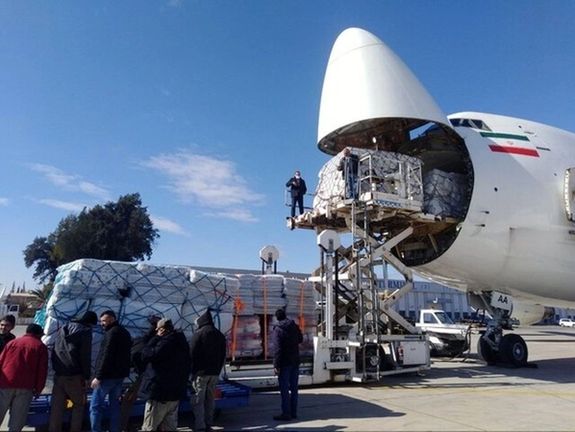
Before the latest strikes which came in retaliation for rockets launched into the Golan Heights, Syrian officials had attributed 10 attacks to Israel this year, some of which put the Damascus and Aleppo airports temporarily out of service and killed civilians as well as Syrian soldiers and Iranian military advisers.
Israel said artillery and drone strikes last weekend hit rocket launchers in Syria and were followed by airstrikes against a Syrian army compound, military radar systems and artillery posts.
Since the February 6 earthquake in northern Syria and Turkey, hundreds of flights from Iran have been landing in Syria's Aleppo, Damascus and Latakia airports bringing supplies. It has opened the door for Iran to build back after a series of strikes from Israel have targeted the likes of munitions factories.
The supplies being smuggled alongside relief goods have, according to intelligence, included advanced communications equipment and radar batteries and spare parts required for a planned upgrade of Syria's Iran-provided air defence system in its civil war.
While Iran's mission to the United Nations in New York said the allegations are untrue, Israel has stepped up efforts to counter the activity, with multiple attacks on airports in the last six months with most aid delivered to Aleppo airport, a major focus of the strikes.
Speaking to Reuters, Brigadier General Yossi Kuperwasser, a former head of research in the Israel army as well as ex-general director of the Ministry of Strategic Affairs said Israeli air strikes against the shipments relied on intelligence so specific that Israel's military knew which truck in a long convoy to target.
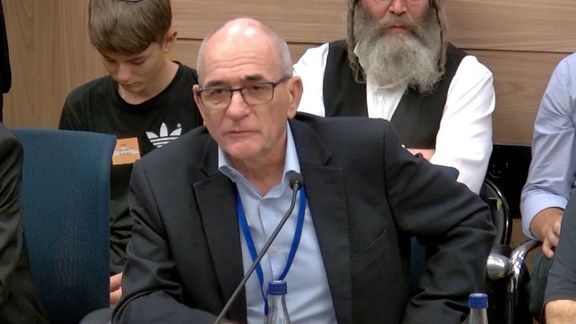
Quds Force is leading the efforts, Unit 18000 Syrian division organising shipments along with the foreign espionage and paramilitary arm of Iran's Revolutionary Guards, led by Hassan Mehdoui (Mahdavi).
Ground transportation was handled by the Quds Force's Transport Unit 190 led by Bahanem Shahariri (Behnam Shahriari), according to intelligence sources speaking to Reuters.
"Israel's strikes also targeted a meeting of commanders of Iranian militias and shipments of electronic chips to upgrade weapons systems," said Syrian military defector Colonel Abduljabbar Akaidi, who retains army contacts. Akaidi did not say where the meeting was held.
Speaking to Reuters, a Syrian army officer who asked not to be named said the Israelis “have information that something is being developed quickly”. The quake created the right conditions and the chaos that ensued allowed Iranian jets to land with ease.
More recently, Israeli strikes have focused on the like of weapons warehouses in the Jabal Manea Kiswa mountain range south of Damascus where Iranian troops and Lebanon's Hezbollah have built what is probably their most fortified military site in Syria.
It is no coincidence, that with Syria being in Iran’s pocket, major regional players are trying to bring Assad in from the cold. From the UAE to Tunisia, diplomatic channels are opening up for the Syrian dictator, which may signal the region’s growing concerns about Syria being Iran’s lapdog.
This also works for Iran. As relations begin to thaw with countries including the UAE and Saudi Arabia, perhaps the region is waking up to the fact that intervention is the only form of prevention of an escalation which is showing no signs of waning.
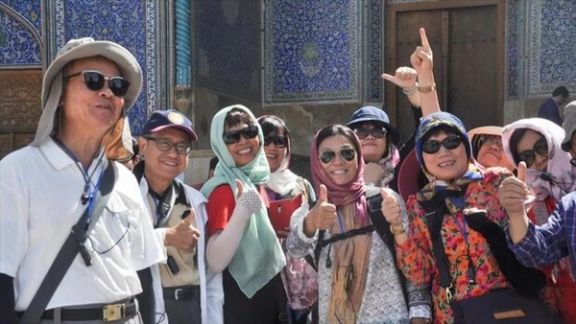
As ties with Iran and China deepen, visas for Chinese tourists have now been waived.
Iran's deputy minister of cultural heritage, tourism and handicrafts, Ali Asghar Shalbafian, made the announcement on Tuesday in a meeting with a number of Chinese tourism delegates.
He said the move aimed to promote tourism between the two nations.
The Chinese delegation traveled to Iran as part of a familiarization tour and met with Shalbafian at the Sa'dabad palace in Tehran.
"In order to boost the attraction of tourists from China, the government of Iran has always been trying to facilitating the entry of visitors, and accordingly, it has voluntarily removed visa for Chinese tourists,” Shalbafian said.
China is considered a key ally for the Islamic Republic of Iran. Last month, Beijing brokered a historic agreement between Tehran and Riyadh to resume long separated diplomatic relations.
Amid arrests of dual nationals with Western passports by the Islamic Republic in recent months, several countries issued warnings to their citizens against traveling to Iran.
Chinese tourism is a huge win for the regime on the back of the global perceptions of the dangers of traveling to Iran, once a much loved tourism destination.
Fearing arrest by Iranian authorities, those foreign tours still operating to the country’s historic sites have been canceled since the protests following the death in custody of Mahsa Amini.